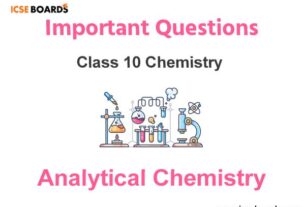Students should read the William Shakespeare His Life and Work ICSE Class 10 notes provided below designed as per the Merchant of Venice book used in ICSE Class 10 English Books. You should refer to all notes provided here for Merchant of Venice Workbook which are really important and can help you to get better marks in ICSE Exams
Life and Work of William Shakespeare
Students in ICSE Class 10 English should read about William Shakespeare. Many questions can be asked in the exams about his novels and his life and work. We have provided below summary of his life and works which will be useful for students. This will help to get more marks in English exams in Class 10th English.
William Shakespeare His Life and Work ICSE Class 10
It’s a pity that the man, whose work even after 400 years is still read, enjoyed, appreciated and considered the best, is only known to us reliably through his great work as no authentic biography of the great artist is available to us. Whatever is known comes from guesswork. Years after his death, his plays were published. Therefore, whatever is known about him through guesses and history is given here.
He was born on April 23, 1564 in the village of Stratford Avon in the country of Warwickshire. His father John Shakespeare was a farmer’s son and prospered as a trader. His mother was Mary Adene, the daughter of a prosperous father, descended from an old family of mixed Anglo–Saxon and Norman blood.
Little is known about his early education. Perhaps he studied in the grammar school of his village, but his real teachers were men, women and nature around him who influenced his imagination and observant mind. Same is the case about his early occupation, only guess work is there.
In 1582, he married Anne Hathway and had three children, two daughters, Susanna and Judith and one son Hamlet who died at the age of 11. About the year 1587, he went to London and joined Burbag’s company of actors.
From 1587 to 1611, he was in London and this was the period of his great literary achievements. He achieved a name and fame in the capital of England. Among his followers, he was known as ‘The gentle Shakespeare”.
Ben Johnson said of him, ‘I love the man and do honour to his memory, on this side of idolatry as much as any’. With three of his earliest plays Love’s Labour lost, Comedy of Errors and The Two Gentlemen of Verona, he seems to have unlocked all the doors of London’s high society of gentlemen and scholars and common theatre going public’s hearts.
In the beginning of his professional career he worked as a general helper and odd job man of theatre. But he soon became an actor and according to the available records, within two years he was working on his plays and soon broke away from apprenticeship work. The next ten years were the years during which, he became prominent.
With Shakespeare’s poems rather than with his early dramas was the beginning of his success. ‘Venus and Adonis’ was greatly popular in London and received not only fame but money also. He was not only a literary genius but also a shrewd and practical man and this combination is rarely found. With his growing popularity came his great plays, which made him the greatest dramatist of English Literature and made Ben Jonson say, ‘He was not of an age but of all times’.
In 1597, he bought the finest house in Stratford Avon and soon added a farming land to complete his state. In 1611, he left London at the prime of his successful career and settled at Stratford Avon. Thus, the bard of Avon came back to his native land leaving the glittering lights of London and lived peacefully a life of English gentleman till 1615 when he died. 23rd April is the date of his birth and also of his death, which is a rare and unique factor. He was buried in his native place and for his admirers it has become a pilgrimage.
SHAKESPEARE’S PLAYS
Shakespeare’s dramatic career has been divided into four periods.
First Period (1588 to 1595)
Comedy of Errors, Love’s Labour Lost, Two Gentlemen of Verona, Mid-Summer Night’s Dream, Romeo and Juliet, Titus Andronicus, Henry VI (3 Parts), Richard II and Richard III.
Second Period (1595-1601)
The Merchant of Venice, The Taming of the Shrew, Much Ado About Nothing, As You Like it, The Merry Wives of Windsor, Twelfth Night, King John, Henry IV (Two Parts), Henry V.
Third Period (1601-1608)
All’s Well That Ends Well, Troilus and Cressida, Measure for Measure, Julius Caesar,
Hamlet, Othello, King Lear, Antony and Cleopatra, Timon of Athens.
Fourth Period (1608-1611)
Cymbeline, The Winter’s Tale, The Tempest, Pericles, Henry VIII (Incomplete).
The greatness of Shakespeare is not fully visible in the plays of first period, though they indicate what is to come. The second period is the period of his great comedies, which are called his sunny comedies.
The third period brings his four great immortal tragedies, Macbeth, Othello, Hamlet and King Lear which deal with the grave aspects of life, where evil seems to be predominant. It is also the period of his dark comedies like Measure for Measure, All’s Well That Ends Well and Troilus and Cressida.
The last period is known as the Romantic stage of Shakespearean art. They are so unsurpassable and incomparable, their plots, characters, human weaknesses and virtues, good and evil, their universal appeal and other numerous dramatic decrees, an exquisite combination of imagery and realism, that they make the reader or audience agree
with Dryden – ‘Here’s God’s plenty’ and with Mathew Arnold – ‘Others abide our question, thou art free. We ask and ask thou smallest And still art our topping knowledge.’



